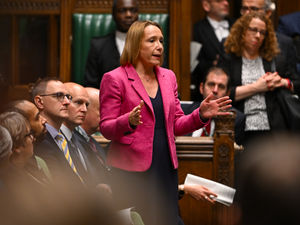Call for more cells to open
A Shropshire MP is calling for local police station cells to be reopened in order to free police from their "taxi driver" roles.

 A Shropshire MP is calling for local police station cells to be reopened in order to free police from their "taxi driver" roles.
A Shropshire MP is calling for local police station cells to be reopened in order to free police from their "taxi driver" roles.
Owen Paterson, the MP for North Shropshire, yesterday met Inspector Neil Spencer, who covers the north Shropshire policing area, to discuss what improvements could be made to the police station in Market Drayton and to other similar small stations around the county.
He suggested that if a new police station is built in the town it should have cells which would free up officers to do their job on the streets.
He also called for the new NSPIS IT system to be installed at Market Drayton.
There are about 600 people arrested in north Shropshire every year. They have to be taken to either Oswestry or Shrewsbury police station, where the new system is installed.
Mr Paterson said installing the system at other stations would free up officers, who have to take people to other police stations where they can be held.
"It's completely crazy that fully paid, competent policemen are acting as taxi drivers, driving people around the county at night. I've heard of one person who went from Oswestry to Shrewsbury to Telford and then I think they ended up in Wolverhampton.
"It takes two competent police officers out of the system for hours, so I'm very keen to get the cells re-opened at Market Drayton."
Mr Paterson also expressed concern that officers could take a softer approach to arresting people. He said an officer had said that since the NSPIS system meant arrested people had to go to Shrewsbury, he had gone from arresting four to six people a day to just one, because it was so time consuming.
Mr Paterson is to write to police bosses urging them to install the new IT system, and saying that if a new station is built at Market Drayton, it should have cells.
By Abigail Bates



